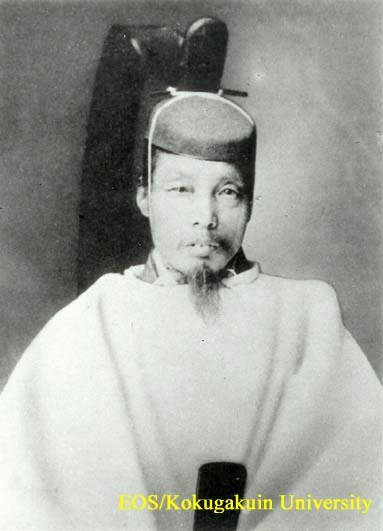- トップ
- Encyclopedia of Shinto
- Kubo Sueshige
Encyclopedia of Shinto
| Main Menu: | |
| Links: |
詳細表示 (Complete Article)
| カテゴリー1: | 8. Schools, Groups, and Personalities |
|---|---|
| カテゴリー2: | Personalities |
| Title | Kubo Sueshige |
| Text | (183-86) Scholar of National Learning (kokugaku) of the late Tokugawa and early Meiji periods. Born in 1830 to a court physician of the Tokugawa clan, Kubo was interested in the study of Japanese classics from an early age and began his studies under the kokugaku scholar Tsurumine Shigenobu (1786-1859). In 1867, on the eve of the Meiji Restoration, he secluded himself in Shimo-Arai Village, Musashi Province (in present-day Saitama Prefecture), later moving to Shizuoka. He entered government service the next year (1868), holding the position of Professor of the University and also Provisional Associate Professor of Instruction (senkyō gonchū hakushi) in the Great Promulgation Campaign of national indoctrination (see taikyō senpu). He also served in the Ministry of Religious Education (Kyōbushō) and was a Special Consultant for the Imperial Household Ministry. He was later appointed Senior Chief Priest (daigūji) at the shrine Ōmiwa Jinja, while serving concurrently as an Associate Prefect of Instruction (chūkyōshō) in the Office of Preceptors (kyōdōshoku, also part of the Great Promulgation Campaign). With the foundation of the Research Institute for the Japanese Classics (Kōten Kōkyūshō, later the Faculty of Letters, Kokugakuin University) in 1882, Kubo was named Professor in the Faculty of Letters. He died March 5, 1886, at the age of fifty-seven. His writings include Kogo shūi kōgi (Lectures on Gleanings from Ancient Words), Sanjū shinpō ron (Discourse on the Three Imperial Regalia) and Shintoku ryakujutsu shō (A Brief Account of the Virtues of the Kami). - Takeda Hideaki |




